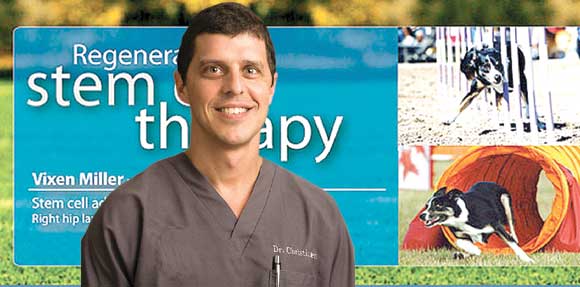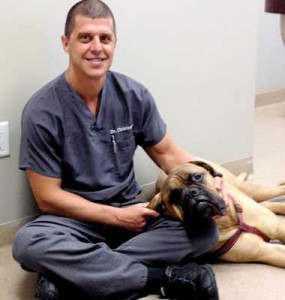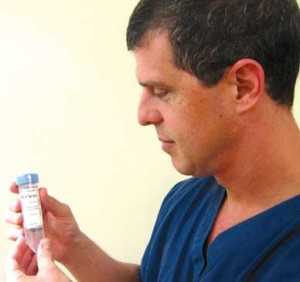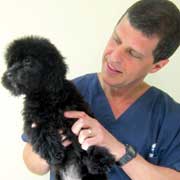Christiansen Brings Regenerative Vet Medicine To Brevard
By Space Coast Daily // October 12, 2014
credentialed to do stem cell therapy

BREVARD COUNTY, FLORIDA – Central Florida board-certified veterinary surgeon, Jeffrey Christiansen of Superior Veterinary Surgical Solutions, has announced partnerships with several Brevard County animal hospitals to bring regenerative veterinary medicine to pets.

Dr. Christiansen has been working in the area since January 2006, is credentialed to do stem cell therapy on small animals since 2008, and is happy to now offer his expertise through five different locations.
“Stem cell therapy is often used for conditions such as arthritis pain, as the therapy decreases inflammation and can help restore damaged tissue,” said Dr. Christiansen.
“The therapy is also often used to treat hip dysplasia. Stem cells are regulators and can increase or decrease the blood supply – and help promote positive inflammation, which can help with healing.”
The therapy, which was first used for horses, is now used for dogs and for cats as well.

“Stem cell therapy has proven beneficial for cats suffering from conditions such as kidney failure and bowel diseases.”
Over the years Dr. Christiansen has used stem cell therapy with Vet-Stem, Inc. on cruciate ligament and meniscus injuries, as well as osteoarthritis of the hips and other joints.
Once Dr. Christiansen has identified a patient as a good stem cell therapy candidate, the pet undergoes a simple surgery to collect fat that is sent overnight to Vet-Stem’s lab in California.
“The therapy uses the patients own tissue,” said Dr. Christiansen. “We harvest a small sample of the animal’s fat. We ship the tissue to Vet-Stem and they process it, divide it into doses, and ship it to us. They bank the rest of the doses for future need. We then inject a dose into the affected joints via an IV.”

The day after the collection the fat is processed so stem cells can be extracted and put into concentrated, injectable doses. These doses are shipped back overnight to Dr. Christiansen and he is able to place them in the affected areas of the patient to encourage healing and regeneration.
Even if a pet is not an immediate candidate for stem cell therapy, but is undergoing an orthopedic or other type of surgery with Dr. Christiansen, he offers the ability to collect a small sample of fat for future stem cell use with Vet-Stem.
Vet-Stem has the ability to cryo-bank stem cells and grow them in the future to provide doses when needed. This service is called StemInsure for dogs, and provides the insurance of a pet having a lifetime of stem cell therapy available from a single sample collection.
NATURAL PROCEDURE
Stem cell therapy can be an alternative for pets that are unable to take anti-inflammatories or have digestive issues, as well as pets that are looking at long-term pain management.

Because the stem cells come directly from the patient risk is low, and the procedure is natural.
As part of Superior Veterinary Surgical (and less-invasive) Solutions, Dr. Christiansen now offers stem cell therapy at Island Animal Hospital in Merritt Island, Brevard Animal Emergency Hospital in Malabar, Aloha Pet and Bird Hospital in Indian Harbour, Maybeck Animal Hospital in West Melbourne, and the Animal Emergency and Referral Center in Fort Pierce.
He is bringing nearly 20 years of veterinary medicine experience with him, and takes pride in specializing in soft tissue, orthopedic, and spinal surgery.
Dr. Christiansen graduated from the University of Tennessee College of Veterinary Medicine in 1996; completed his surgical residency in 2001, following an internship; and in 2002 he became a Diplomate of the American College of Veterinary Surgeons.
For Information call 954-243-9665 or e-mail jchristiansen2@cfl.rr.com











